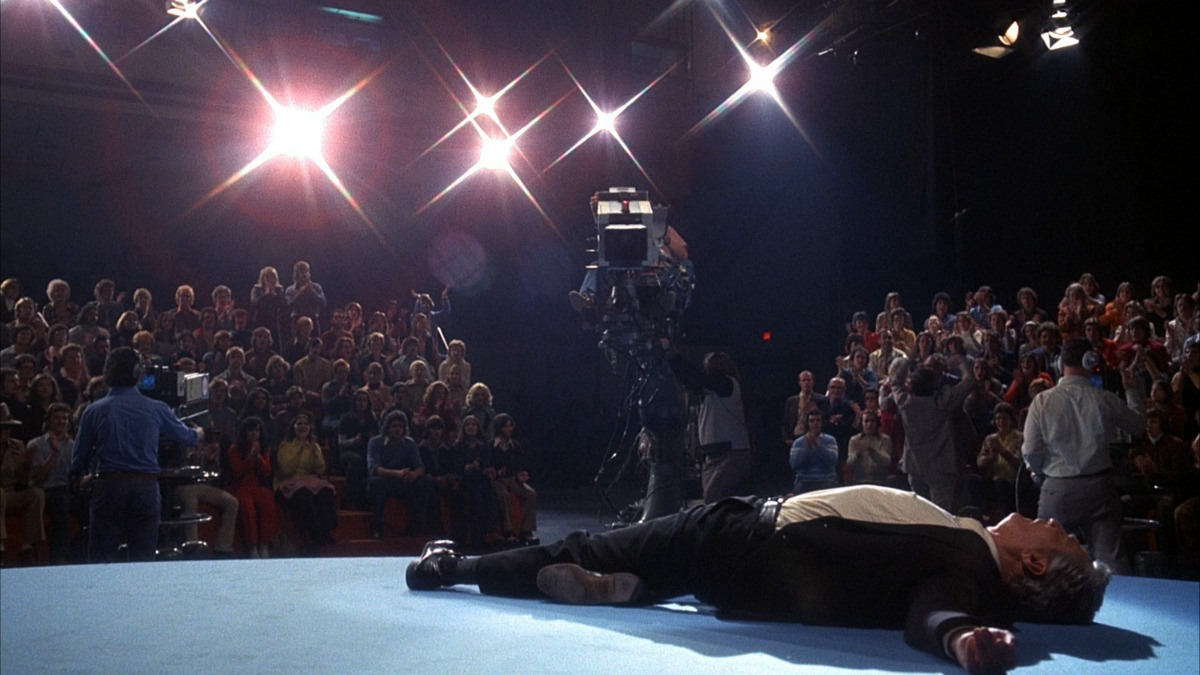Network (1976) and the Consumerist Dystopia
In Network, Lumet depicts a consumerist dystopia on the brink of a grand awakening, brought forth by a culmination of a collective weariness. We are the unfortunate byproduct of a television generation: we have learnt to experience life through a formatted allotment of engineered soap-drama entertainment and 30-minute TV serials. We have been tamed into docile behaviour, placidly sitting around a talking picturebox, waiting to be spoonfed information through moving pictures and audio like obedient servants.
Those behind the curtain are portrayed entirely as detached from the realness of life. Faye Dunaway's Diana is the proto-network imperialist, birthed from the soulless jargon of ratings and numbers and thrives within the culture that is fostered from it completely. They quantify enjoyment and reduce attention to a set of banal metrics. They are vultures, not subscribing to any other agenda but the pursuit of wealth, at one point parading around the tirades of an unravelling madman as it provides gainly profits in their never-ending numbers game.
The culture that inevitably arises from this is akin to poison, a slowly spreading greed that corrupts all that come into contact with it. (Laureen Hobbs' transition from a passionate communist into a bitter number-conscious exec being the most extreme example of this.)
And what for? Lumet answers with a terrible smile: To be compliant consumers to the capitalist machine.
There is no America. There is no democracy. There is only IBM, and ITT, and AT&T, and DuPont, Dow, Union Carbide, and Exxon. Those are the nations of the world today.
We are to continue consuming, to always be wrapped up in the pursuit for more but only within the set lines of the consumerpocalypse, where we answer not to a sense of morality or to a God, but to profit and loss and market economy.
Originally posted on Letterboxd on 18th March, 2024

Comments
Post a Comment